QUEBEC — Stéphane Bergeron, Quebec’s public security minister, announced the creation Wednesday of a “special commission” that will hold closed hearings into violent incidents during last year’s protests against a proposed tuition hike, known as Quebec’s Maple Spring.

The special commission will cost $400,000 and is to begin deliberations in June. After reviewing available evidence and meeting witnesses, it must make recommendations to the minister in a report due by Dec. 20, 2013.
“The commission will have the mandate to analyze the circumstances of demonstrations and disruptions in Quebec in the spring of 2012, to identify factors contributing to the deterioration of the social climate and to evaluate the impacts of the events of springtime 2012 on the public,” Bergeron said.
But the commission will not have the powers of a public inquiry to compel witnesses to testify.
“I remain convinced that the vast majority of police women and men in Quebec acted with all the professionalism required in the circumstances,” Bergeron, who is responsible for policing in the province, told reporters at a news conference called with about 20 minutes’ notice. “That said, beyond individual cases, certain attitudes, practices and techniques, on one side and the other, raised questions.”
Bergeron said 200 complaints about police action, arising from the 2012 events, have been filed with Quebec’s police conduct commission. He urged others who feel they were abused by police action to contact the independent Commissaire à la déontologie policière, which deals with complaints against police.
- Trudeau says ICC warrant requests for Israel, Hamas leaders push false equivalency
- Quebec judge limits language law requiring English decisions be translated
- Liberals apologize to Speaker for partisan post that sparked calls to resign
- Canada lays new sanctions on Russia over North Korean weapons transfer
Bergeron blamed the escalating unrest on the former Liberal government’s refusal to recognize “the legitimacy of the strike movement” and its Bill 78 proposing heavy fines and limits on protests.
What is Bill 78? Find out more here.
Bill 78, denounced by the Quebec Bar Association and the province’s human rights commission as violating fundamental rights to expression and assembly, was abolished in one of its first acts of the new Parti Québécois government last September.
Separately, Higher Education Minister Pierre Duchesne told reporters he believes the tuition crisis “was orchestrated by, supported by, blown out of proportion by the former Liberal government. They profited from this crisis by calling an election on it.”
Robert Poëti, a former spokesperson for the Sûreté du Québec who was elected last September as Liberal MNA for Montreal’s Marguerite-Bourgeoys riding, said the decision by the PQ cabinet to name “a secret commission of inquiry” was “surprising, astonishing and unacceptable.”
He added the inquiry seems politically motivated, recalling that PQ MNAs themselves wore the red square — a symbol of the student protest — and participated in marches.
The commission will be headed by Serge Ménard, a former PQ public security minister who was also a Bloc Québécois MP, and practised criminal law before his political career.
Ménard will be assisted by Claudette Carbonneau, former president of the Confédération des syndicats nationaux (CSN), and Bernard Grenier, a retired Quebec Court judge named by the Liberal government of Jean Charest to look into possible illegal financing activities during Quebec’s 1995 sovereignty referendum.
Poëti questioned Carbonneau’s neutrality, noting that Quebec’s labour federations helped finance the student protest.
Jacques Duchesneau, a former Montreal police chief and Coalition Avenir Québec MNA, suggested that a police union official could also be named to the commission.
Duchesneau called for a public inquiry format — with the same powers as the Charbonneau Commission to compel witnesses to speak in return for immunity from prosecution on their testimony.
The CAQ MNA noted that while he was not informed in advance of Bergeron’s announcement, former student leaders Martine Desjardins and Gabriel Nadeau-Dubois were already in an RDI television studio commenting on the inquiry as Bergeron was speaking.
Amir Khadir, the Québec solidaire MNA who was arrested at a Bill 78 protest during the spring events, and whose daughter was also arrested, said the focus of the inquiry should not be on the protesters but on police action, citing cases in which protesters were injured in confrontations with police.
Khadir recalled that when former Liberal premier Jean Charest named the Charbonneau Commission, initially without the full powers of a commission of inquiry, Bergeron denounced it in colourful terms, suggesting it was powerless.



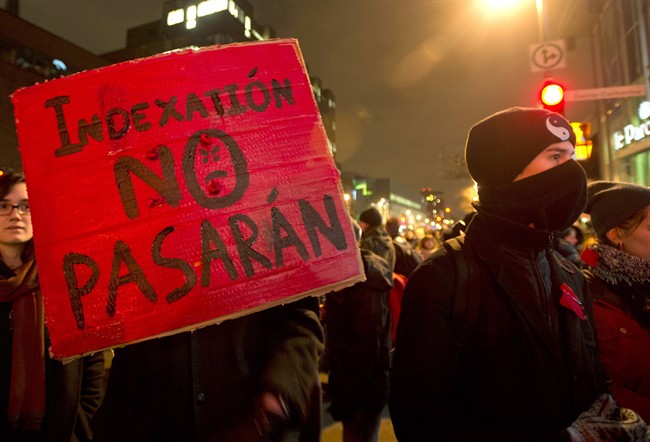

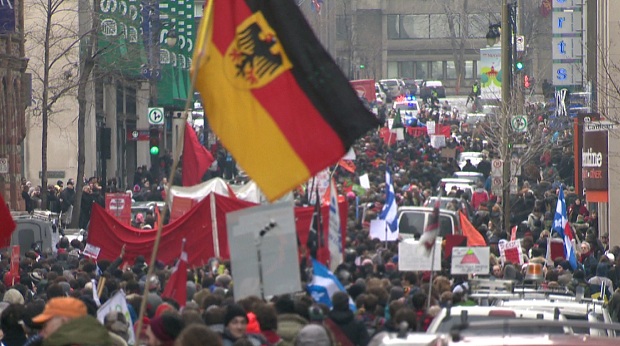

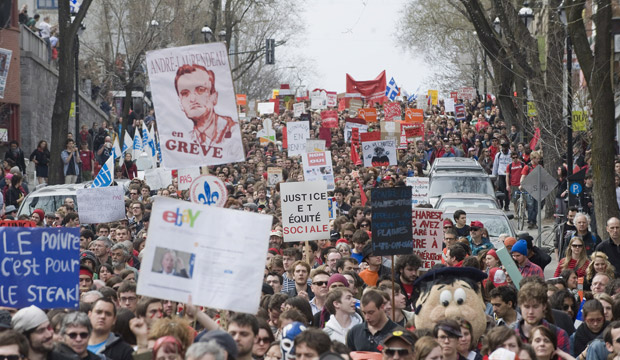



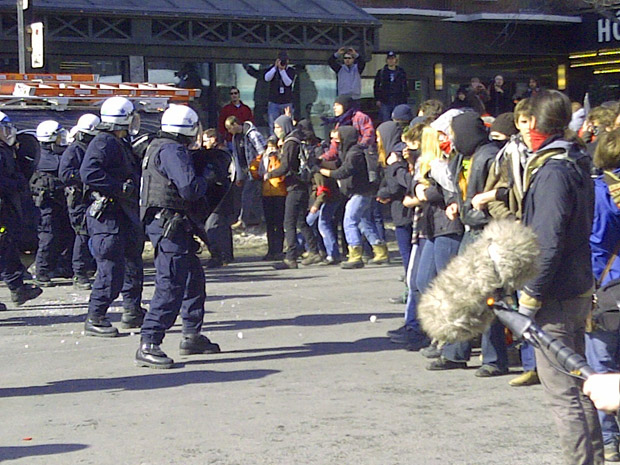

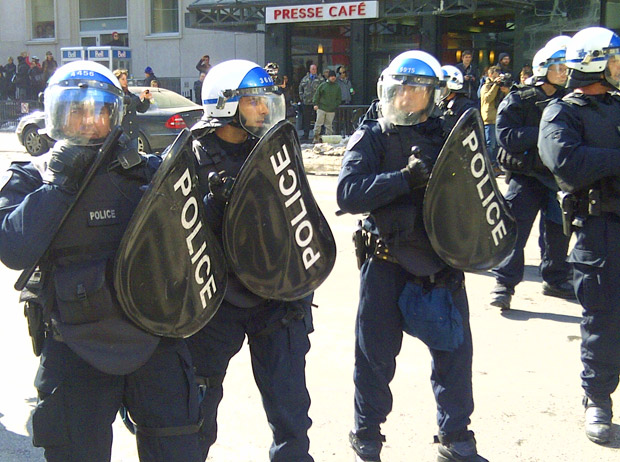

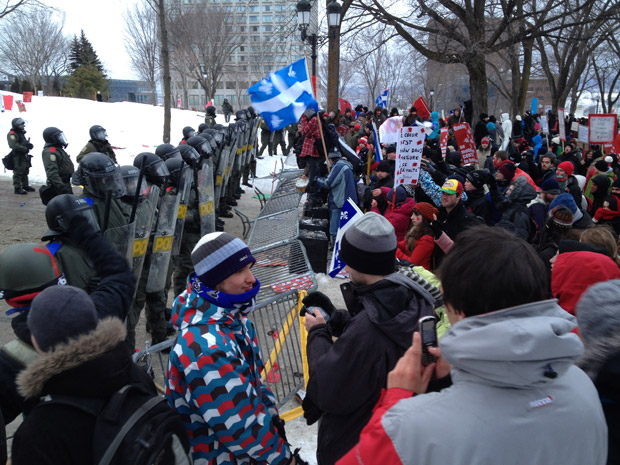

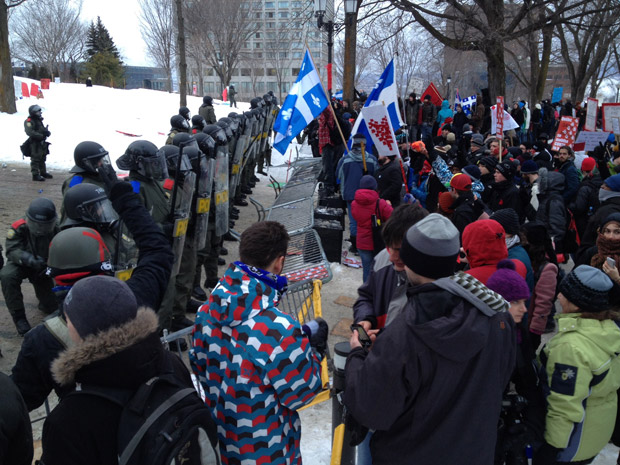





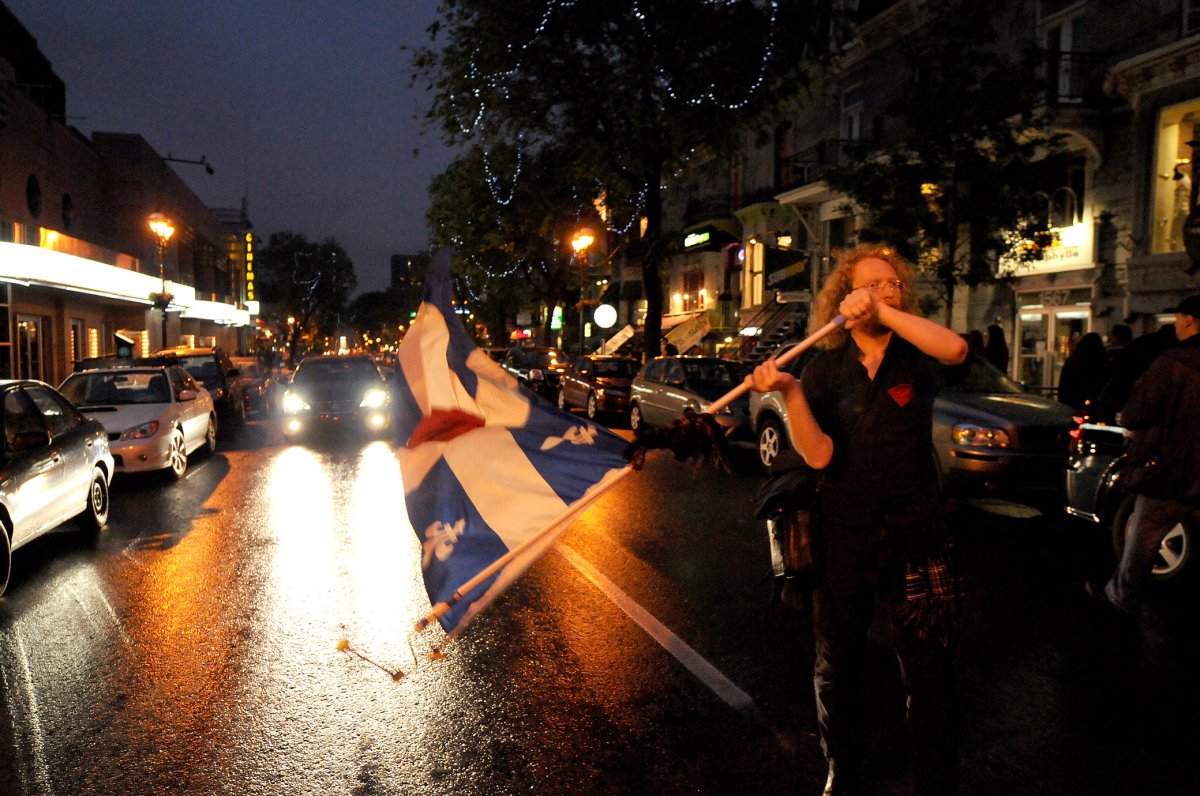

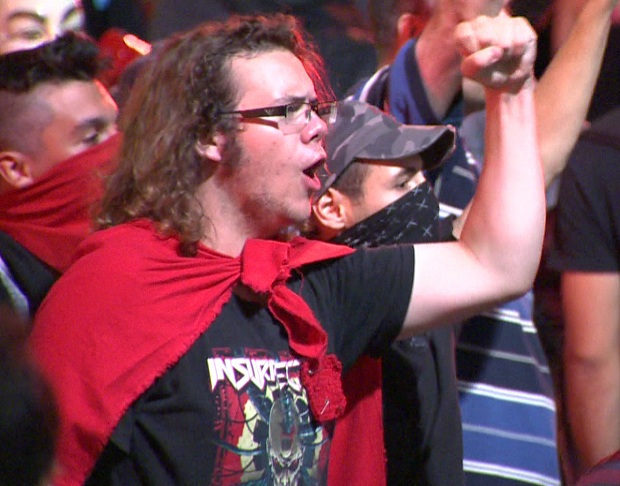



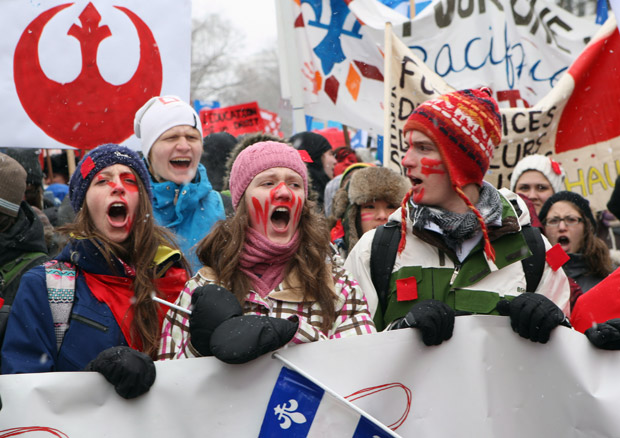

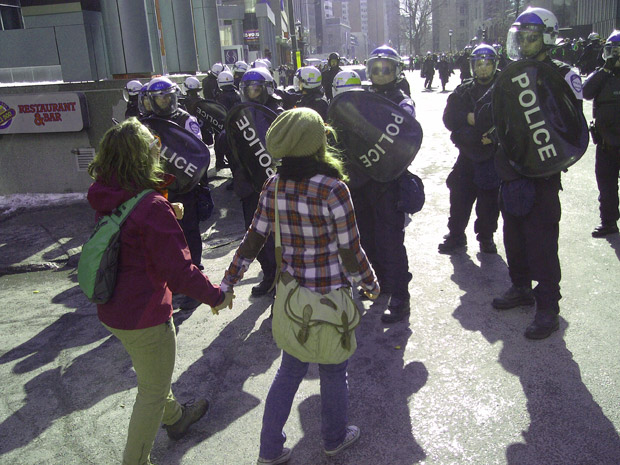



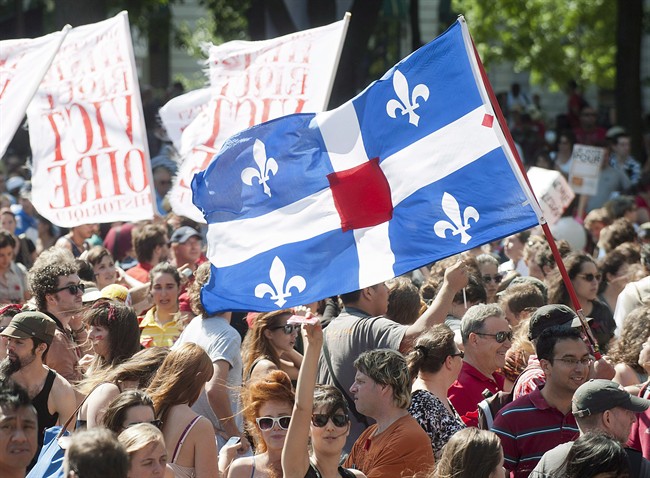



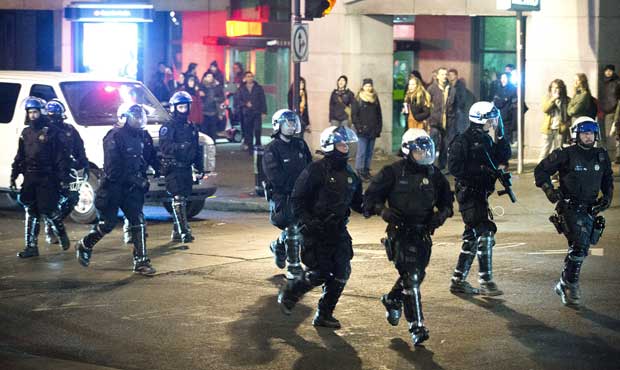



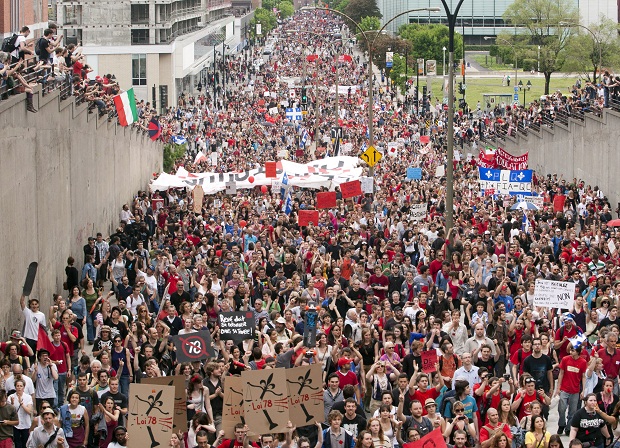


Comments